This year, our demand on the Earth exceeded its biocapacity on August 2nd
Earth Overshoot Day 2023
Transforming our food systems to feed our growing population and safeguard the Earth's resources
Earth Overshoot Day 2023
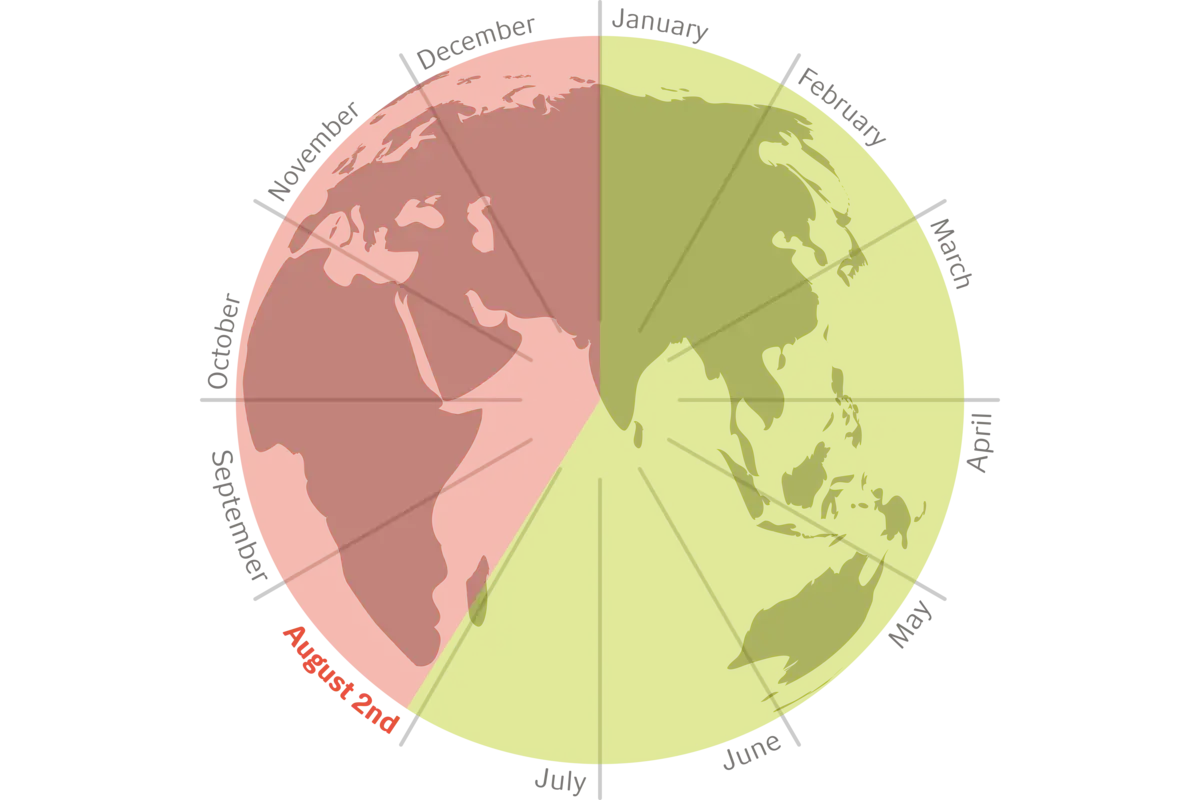
Year after year of record temperatures, floods, wildfires, pollution and drought. Our planet just can't keep up. And feeding a population of nearly 10 billion by 2050 will strain its resources further. How do we create resilient food systems that work for our planet? From farm to table, people are trying to ensure food security without destroying the planet. Biosolutions can be an agent for change.
Farmers are on the front line of the planetary crisis. They’re already adapting through climate-smart agriculture, but the challenge is growing. They need to get higher yields from the same land, while struggling to make ends meet.
Producing food in the face of crisis
Food processing puts a heavy burden on the planet, and food processors work hard to reduce it. They strive to get the most from their raw materials while reducing their energy and water consumption.
Easing food processing’s burden on our planet
Consumers are having to face the reality of the climate impact of their diets. Retailers and consumers have to look for sustainable alternatives to what goes on our tables.
Changing our diet to protect our planet
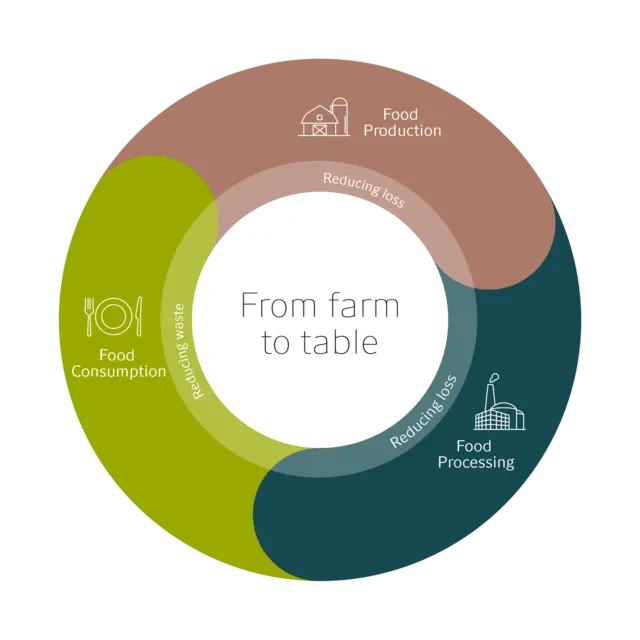
Biosolutions shrink baking’s environmental footprint in a range of ways. They help reduce baking times, dependency on chemicals and bread waste.
For every 100 units of bread consumed, up to 25 extra units are generally baked to cover stale returns. This waste increases bakeries’ emissions. Our anti-staling solutions help keep bread fresh for longer. You can calculate the resulting savings in CO2 emissions by trying our freshness calculator.

United Nations Conference on Trade and Development

By 2050, farmers will need to feed an extra two billion people. But farms across the globe are facing extreme weather and a rise in pests and disease. The result is a predicted 30% decline in global yields by 2050. And at the same time, farming and other land use is also a key contributor to climate change, causing around 25% of greenhouse gas emissions. Farming is also responsible for 75% of freshwater use and with the runoff from farming we face severe water pollution.
People are already putting the earth at risk by expanding into forests and wetlands that store vast amounts of carbon. We shouldn’t take more land for farming, so what can we do?
Farmers are working to develop resilient agricultural systems that can create food security with the resources they’ve got. And they’re striving to do that without causing any more harm to our planet. Biosolutions can help.
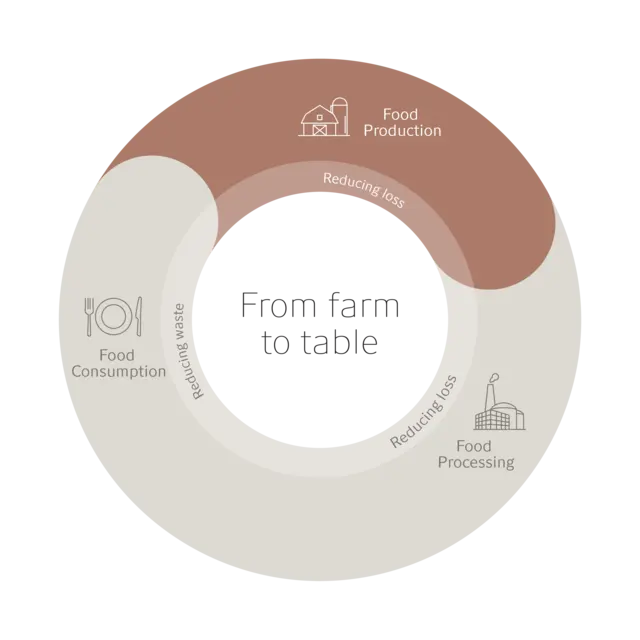
Climate change is making plant pests that ravage crops even more destructive.
Chemical pesticides provide effective pest and disease control. But they’re also linked to adverse effects on human health.
Biocontrol solutions work as a standalone or in combination with a much lower chemical application. That gives farmers a broader toolkit to control pests in the face of a changing climate, while reducing chemical pesticide usage.

Food and Agriculture Organization of the United Nations, Regional Water Dialogues in Latin America and the Caribbean

Drying, curing, heating, cooling, cleaning and refrigeration. These are all necessary to feed us but put a heavy burden on the planet. Their energy intensity makes processing a significant contributor to the food sector’s overall carbon footprint.
In addition, processes that convert raw materials into food and drink for consumers can generate waste streams that contribute to water pollution. Some processes also use harsh chemicals.
Food processing plants need to maintain a completely sterile environment, or they put consumers’ health at risk. Many plants rely on chemical cleaning agents such as caustics and acids. These increase energy and water usage, and their waste streams can also impact water quality.
Food processors are committed to reducing their environmental impact. They’re taking responsibility right across their value chains. Biosolutions can help.
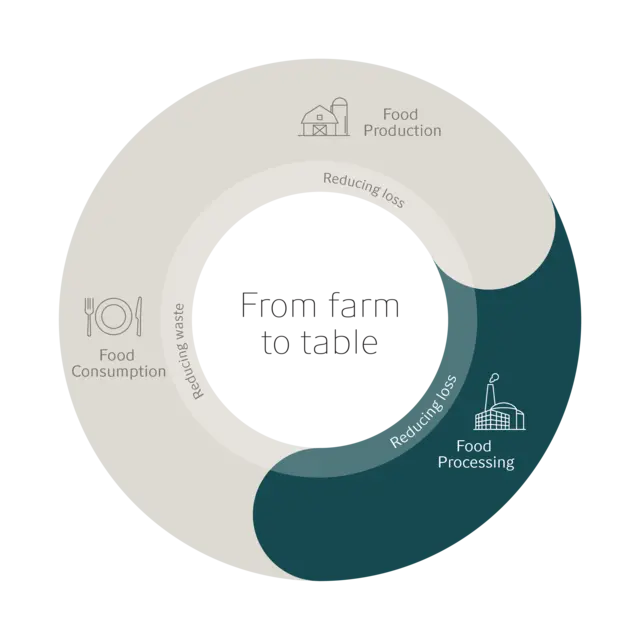
Food needs to be processed in hygienically clean environments to keep us safe.
Chemical cleaning agents lead to a range of sustainability challenges. They need high temperatures, which increase energy usage. And if they’re not treated properly before being disposed of, they can impact waste streams, even in diluted form. Compared to chemicals, enzymes clean at lower temperatures and are 100% biodegradable.
They’re also better at breaking down organic matter, like protein soils in dairies. That can mean less cleaning, for water savings.
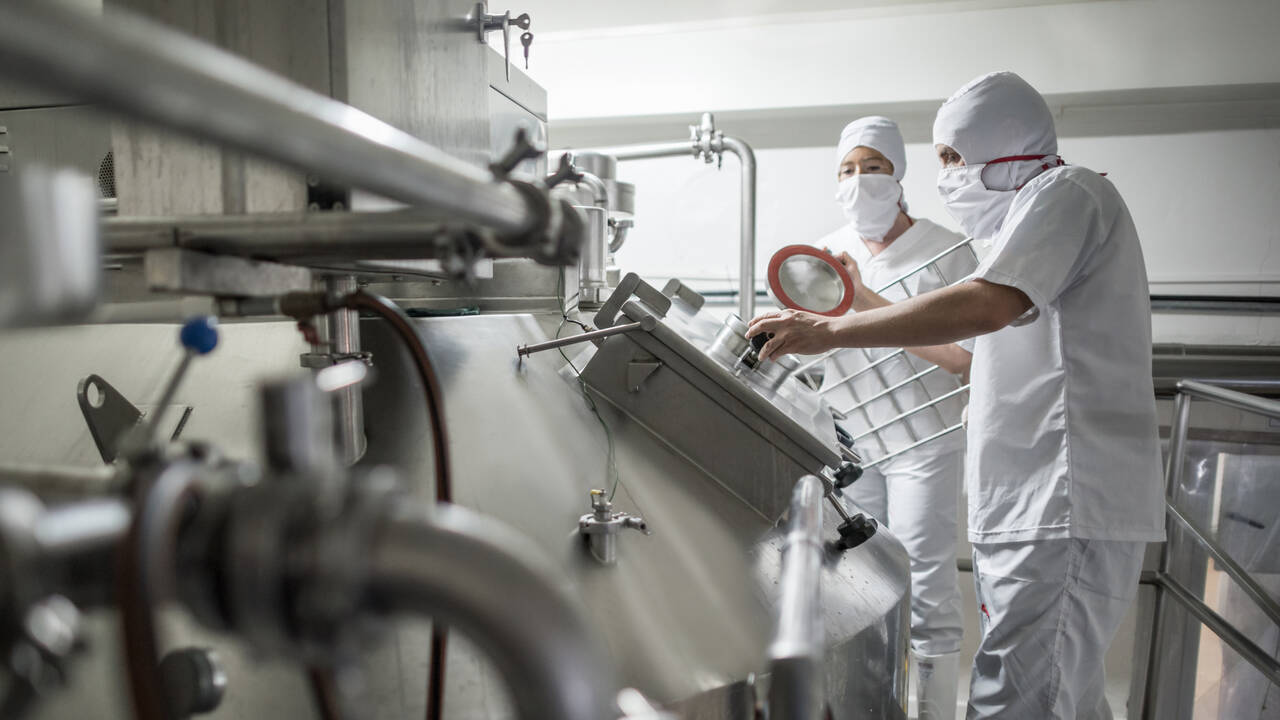
United Nations' call for action on the International Day of Awareness of Food Loss and Waste, September 2022

The dietary choices that we make have a major environmental impact. Our choices in the supermarket help determine what gets grown in the field and processed in factories.
Our choices and habits also determine the amount of food that gets lost and wasted. Food loss and waste account for 8 - 10% percent of global greenhouse gas emissions. These emissions come in part from food waste in landfills. As it rots it produces methane and other greenhouse gases.
Animal proteins are crucial sources of much-needed nutrients. But they also have a higher climate impact than their plant-based counterparts. The IPCC’s special report on climate change and land showed just how much consumers can reduce their emissions by moving towards diets with less meat.
Consumers are increasingly putting more climate-friendly foods on their tables. Biosolutions can help.
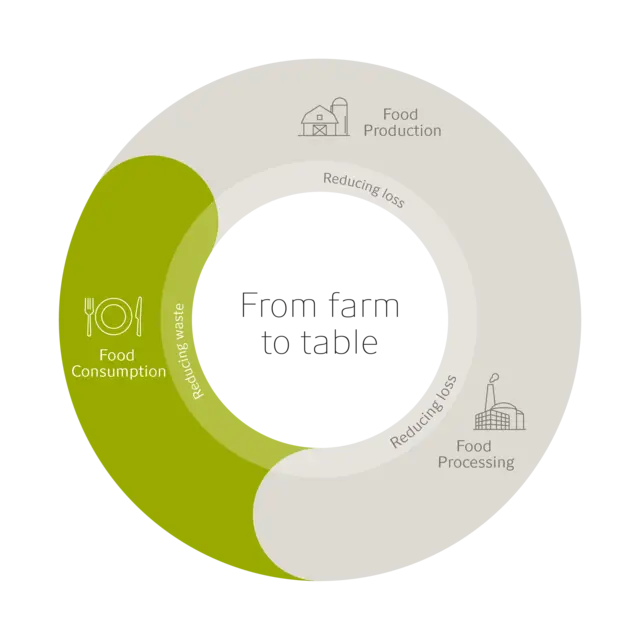
Each year, more than 1.3 billion tons of food is lost or wasted in our food systems.
Through waste-to-biogas systems, the food that’s wasted could become a renewable energy alternative.
Biosolutions make more organic material available for biogas production and reduce water usage. That helps to make biogas production even more sustainable.
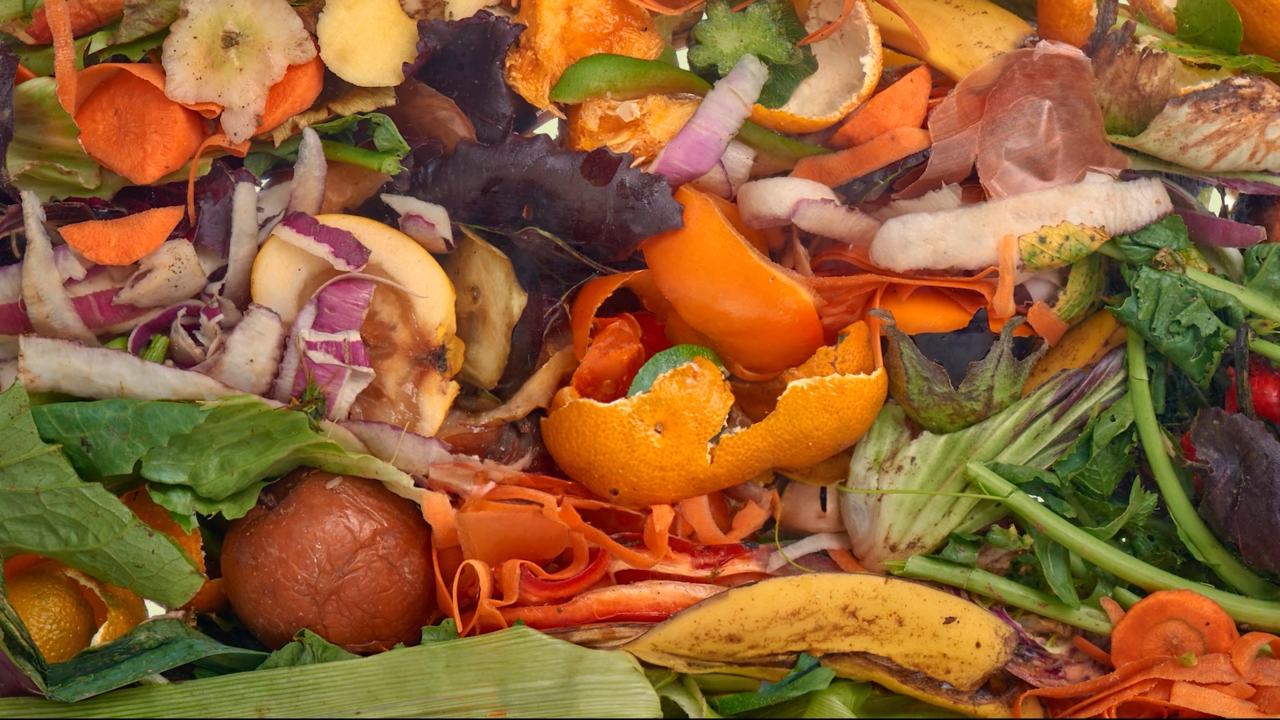
Helping us get the most from every resource.
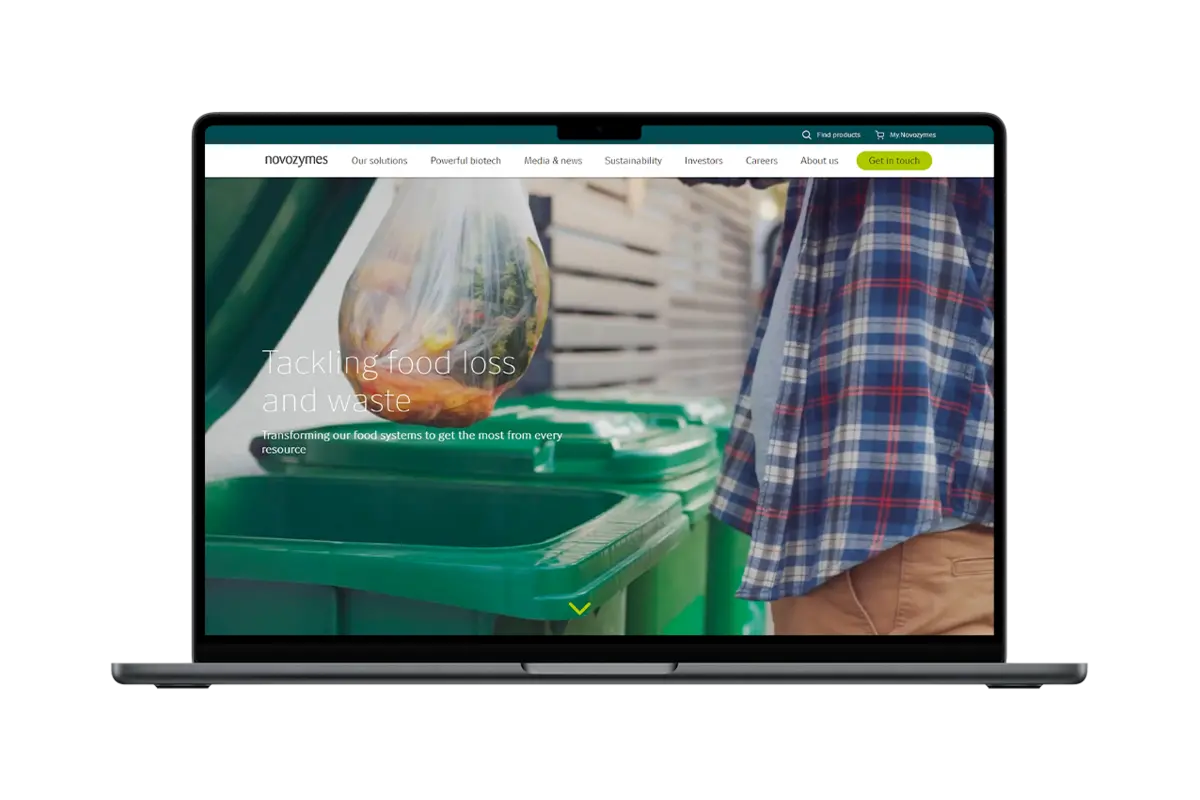
Find out why biosolutions are part of the answer to achieving a healthy planet.
